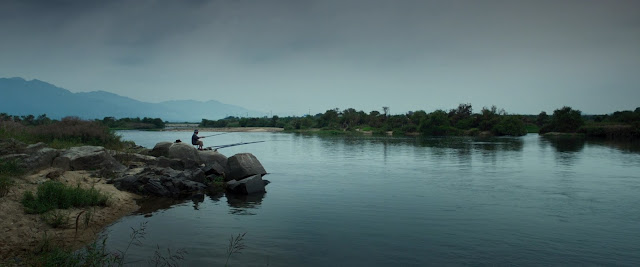Goksung (original title) or The Wailing (English title), the new film from South Korean director and writer Hong-jin Na (known for Chugyeogja - Chaser - 2008 and Hwanghae - The Yellow Sea - 2010), is already considered one of the great works in the horror genre, addressing a macabre part of eastern culture on legends, curses, evil spirits and mysticism, being one of the highlights at the Cannes Film Festival.
Coincidentally after the arrival of a stranger, a strange disease begins to spread in the small village of Goksung, triggering a series of brutal murders. What at first appears to be only crimes of passion just takes darker contours, since all deaths occur in mysterious circumstances. In charge of the investigation, the police officer Jong-Goo (played by Do Won Kwak, known for Ajeossi - The Man From Nowhere - 2010) searches for clues and explanations to the tragic events. When his daughter, Hyo-jin (played by Kim Hwan-hee), begins to feel the strange symptoms of the disease, he has to fight against time to solve the mysterious case and save her life.
With a rhythmic narrative, The Wailing presents a folk story associated with Eastern mysticism and also the occultism, marked by elements of mystery, horror and supernatural, as guardians, demons and shamans, and the unfolding of the plot gradually gets more intense and disquieting contours. The technical quality is one aspect that stands out in the movie. The picture and the soundtrack provide an immersive and engaging combination as ambiance, expressed by constant rain, the mud, the precariousness of the small village, the striking features of a small town, as well as makeup and massacre scenarios, consolidate the mystical and eerie atmosphere of the film, expanding the mystery and holding the viewer's attention.
The script plays well with expectations, building some characters in a dubious way, without specifying their actual intentions. A relatively simple story is presented in a complex and intriguing way, where apparently scenes with no great purpose show us much, requiring attention to small details, whether occult symbols or religious references (Biblical). Crows and goat's head are used throughout the narrative, symbolizing death and evil omen and referring to the profane and witchcraft.
The film manages to build an atmosphere of terror without abusing the typical genre tricks. The moments of humor are used to softer the approach of a subject that in itself is already quite tense. Here it is worth mentioning the great performance of Do Won Kwak in the caricatured role of the lazy, fumbling and fearful police officer, though well intentioned.
With a competent job of the cast, efficient direction creating an atmosphere that blends mystery, horror and comedy as well as providing much reflection with an end open to different interpretations and also for its originality, The Wailing is one of the most significant movies within the genre in recent years.
Original title: Goksung
English title: The Wailing
Director: Hong-jin Na
http://www.imdb.com/title/tt5215952/













